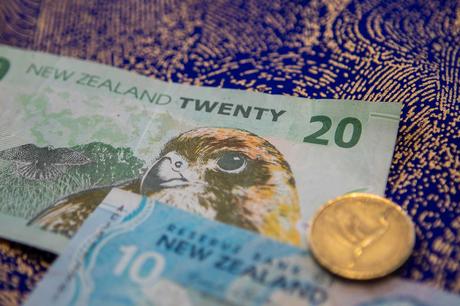The NZD/USD saw a sharp decrease with the government taking steps to remove tax incentives, discourage speculation and remove the housing bubble.

NZD/USD Spirals Lower as Government Tackles Housing Bubble Issue
The government's initiative to remove tax incentives and prevent investor speculation has pulled the NZD/USD currency pair lower. It dropped sharply from 71.70 to 71.10. Bond yields dropped as investors expect interest rates to remain at record lows for a longer duration.
The New Zealand dollar closed in the negative zone last week. The currency pair started the week by slipping below the 0.7000 levels during trading hours this week. The 10-year yield touched 1.545% lows in New Zealand, while Australian bonds went down to 1.677%.
The fall in the NZD/USD continued, and the currency pair moved lower to 0.6950 levels last week. The New Zealand dollar is unable to break past 0.70 level with the housing bubble issue.
Housing Market Speculative Bubble
Prime Minister Jacinda Ardern says that surging house prices is a rising concern in the country. A dangerous housing bubble is forming, and it should not be allowed to grow, says the Prime Minister. First-time homebuyers and people in the lower strata of society are unable to buy a property with the runaway housing prices, bringing social inequality within the country.
By removing tax incentives, investor speculation may come down, says the government. Finance Minister Grant Robertson is taking measures to dampen speculative demand and to protect first-time home buyers. Those who own more than five houses are purchasing more houses, and only rich property investors are able to invest in the housing sector. He has asked the RBNZ to restrict interest-only mortgages to prevent speculation.
Record-low interest rates have brought a price boom in the housing sector. House prices have gone up 21.5% from last year till February 2021.
First-time buyers will gain from the changes announced by the government. Once competition from speculation decreasing, housing prices will go down, and ordinary people will get an opportunity to buy property say, experts. However, it would drive rents higher, says the Real Estate Institute.
Changes to Curb Zooming Prices
The government has brought in many changes to tackle the soaring prices in the housing sector by cutting the tax break. Speculators and big businessmen could claim interest payment on home loans as a business expense, and a curb on such activity is made by removing tax incentives.
More funds are pumped into the economy to accelerate infrastructure supply so that vacant lands can be transformed into new homes. The brightline test will be extended from 5 to 10 years, which means that those who sell their property within a decade will have to pay capital gain tax.
Sentiment Driven News that Drives the NZD/USD
The Employment Rate in New Zealand remains unchanged in February. Employment in primary industries has dropped marginally, while that in the service industries has improved.
The Food Price Index (FPI) has moved lower from 1.3% in January to -0.9% in February, which is bearish for the New Zealand dollar.
BusinessNZ Performance of Manufacturing Index has declined to 53.4 in February 2021, from the previous figure at 58.0. A fall in new orders and production has affected the sector. Craig Ebert, the BNZ Senior Economist, says that supply is the main problem created by freight, increasing costs, and disruption in the supply chain.
Visitor arrivals in New Zealand have dropped 98.7% by 405,300 year-on-year and are at 5,400 in January 2021. Strict border restriction to prevent the surging coronavirus crisis has brought a decline in visitors, especially from Australia, bringing the NZD/USD lower.
GDP figures in New Zealand are lower, and the economy faces a technical recession that began in October 2020. According to the Stats NZ report, New Zealand faced a 1% drop in GDP figures for the last quarter ending December 31, 2020. The economy has not done as well as expected, says ASB Bank. Bank of New Zealand predicts a further drop in GDP for the quarter ending March 31, 2021. The worst-hit areas are in the construction sector and accommodation industries.
GBP/NZD
The GBP/NZD is moving in a positive direction, towards multi-month highs. The British Pound is stronger against the kiwi, as government intervention in the housing market is keeping investors away.
EUR/NZD
The EUR/NZD currency pair is moving lower with the coronavirus woes are increasing. German Chancellor Angela Merkel has warned that strict restrictions would be imposed in the country, with a surge in the Covid-19 infections. Economic recovery is getting delayed says, Merkel.
The European dollar has dropped lower from 1.70 levels to major support at 1.6790 levels against the New Zealand dollar. The rising government bond yields in the US have further weakened the euro, say experts.
US Dollar Index
Sino-American trade tensions have lowered the NZD/USD currency pair. US Trade Representative Ms. Katherine Tai says the tariffs on Chinese imports will not be lifted, in the short term, but trade negotiation talks remain open.
Earlier, Beijing had warned the US over its relationship with Hong Kong and Taiwan, which has renewed tension between China and the US.

